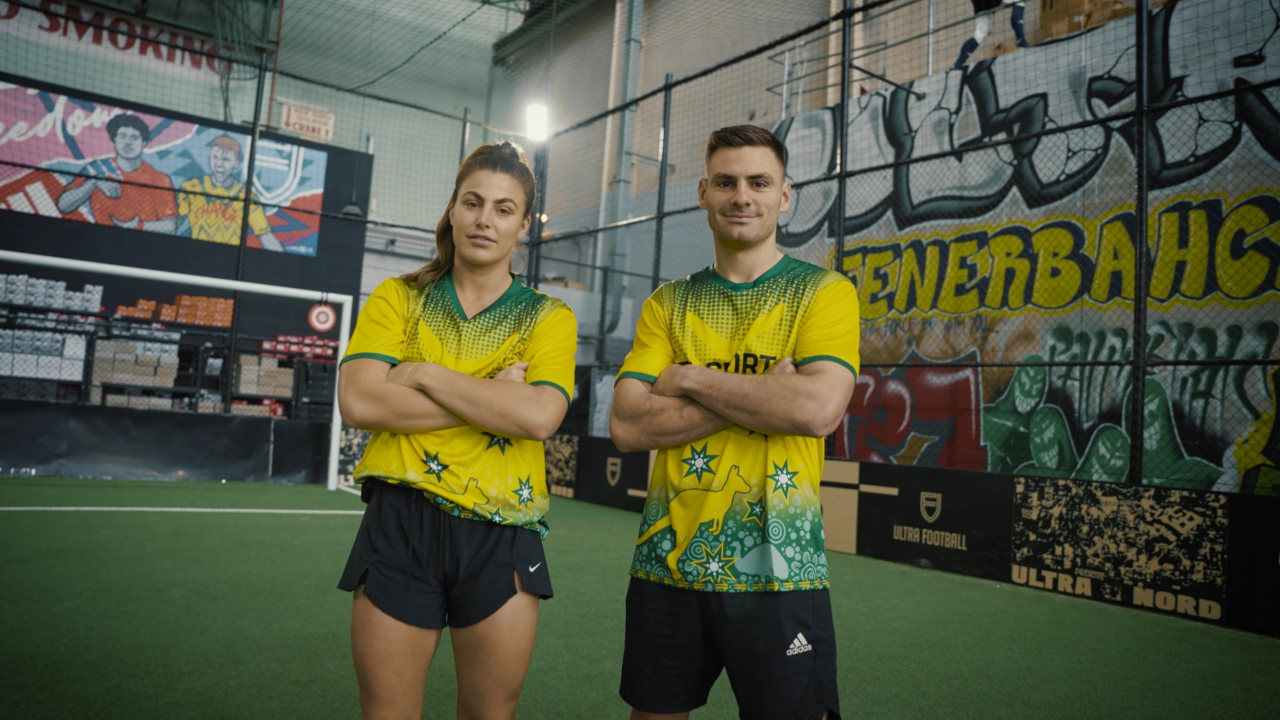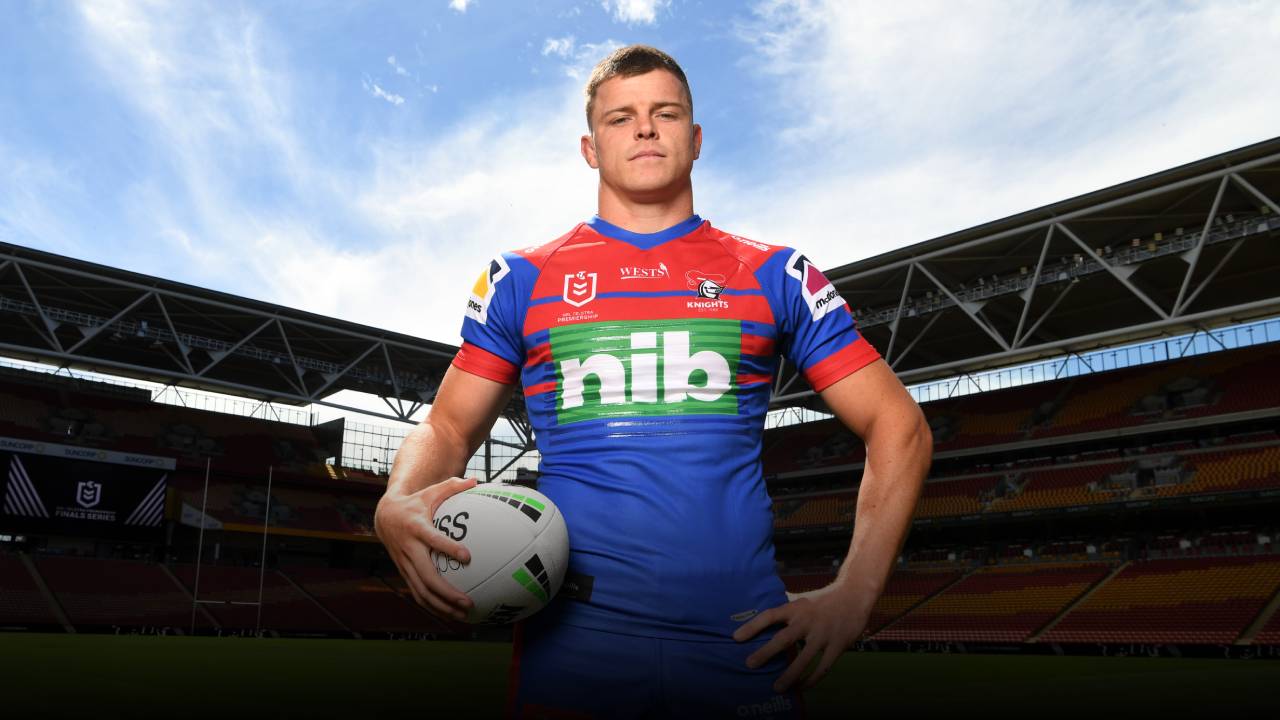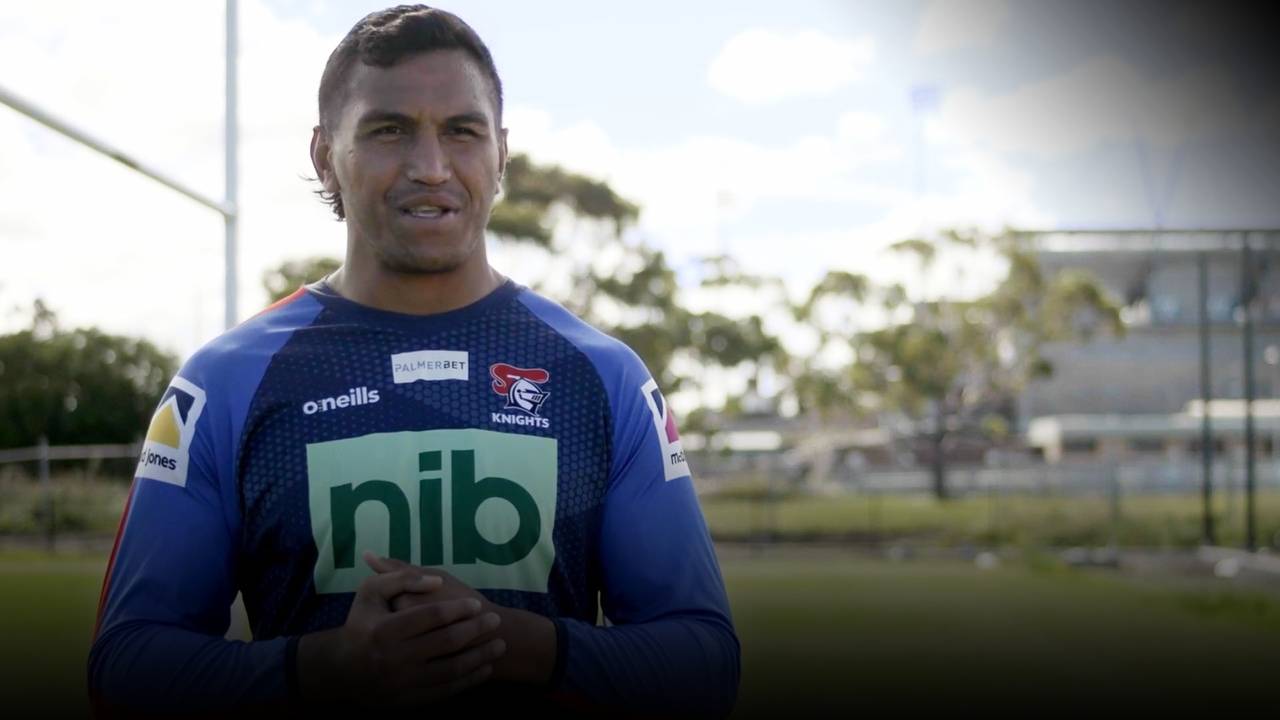THE QUESTIONS I HAVE TO ANSWER
I’m grateful for what the game has given me and the life I’ve got. The time I get to spend with my family and the avenues I’ve been able to go down away from the field through my involvement with rugby league.
I’m am ambassador for the Federal Government and NRL in their joint initiative VET (Vocational Education and Training) program. Real skills for real careers, which is something I’m genuinely passionate about because of my past as a qualified electrician.
I get out to as many high schools as I can and talk to the kids about my own journey as a way of promoting these pathways.
I’m also an ambassador for the NRL’s State Of Mind and Voice Against Violence programs. These associations have enabled me to develop life skills you don’t necessarily acquire if everything is handed to you on a plate.

I haven’t decided what I want to do after my playing career ends, but I know what my options are.
I’m doing a Bachelor of Sports Business course at the Australian College of Physical Education. After I get through this semester, I’ve got three subjects to go next semester and I’m done.
I’ve also completed Level I and Level II coaching courses. I’m quite passionate about coaching. I like it because of the direct involvement in footy, but I also love the administrative side of the game.
Do you want the volatility of coaching, or the stability of administration? What’s the better long-term outlook? These are the questions I have to answer.
I’m 34 in September. I’ll either be playing on for Parramatta – I don’t want to play against them – having a stint in England, or retiring. When my post-playing career does begin, I’m hoping it can be at the Eels. I’ve made my home here. But I’d love to rack up 100 games for the club first – I’m on 85.
I love this club. My wife, Erika, loves it. My kids, Amelia and Keira, love it. I turned my father-in-law from a Manly supporter into an Eels fan. I’ve got strong relationships with Bernie Gurr and Mark O’Neill in the administration. I work very well with Brad Arthur and the coaching staff.
But you can’t just roll up and say, ‘I want a job’. You’ve got to have something to offer. I know I’ve got that. The now is great, but when you’re in a relatively short-term profession like playing footy it’s dangerous not to think ahead to what you might want to do afterwards.
I’ve been preparing for that day for as long as I’ve been playing in the NRL.
LATE BLOOMER, BUT STILL HERE
The traditional order of things is that if you go to play in England you do it at the end of your NRL career. I did it the other way around.
My dad, Bob, was born in England and when I was playing Jersey Flegg for Balmain Tigers and working as an apprentice electrician my manager suggested I get a British passport, just in case it came in handy. It did.
A scout from Salford Reds came out here in 2005 and watched me play. I was still a bit young and raw, so he said, ‘We’ll sit on it for a bit’. Then in 2006 he came out again and they offered me a deal.
I jumped at it. I was playing reserve grade for the Magpies and getting frustrated. I thought I was good enough to play NRL, but as I came to realise later I wasn’t physically mature enough at that stage.
This was a chance to go professional in the Super League and once I got a taste of that it confirmed to me that it was what I wanted to do in life. It lit the fire in me to want to succeed in the NRL.
I spent 18 months in England and came back when Salford got relegated at the end of the 2007 season. I signed a reserve-grade contract at Balmain Tigers and threw myself into the challenge of trying to become an NRL player.
Tim Sheens gave me my debut at Wests Tigers in the last round of the 2009 season. I’d won the NSW Cup Player of the Year award, so I’d had a really good season in reserve grade.
Someone was out injured and I was called up. Tim rang me at the start of the week and said, ‘Can you come to training?’ I said, ‘Oh, OK’. He said, ‘Mate, you’ll be playing’. I was pretty excited.
Robbie Farah, Benji Marshall and Chris Lawrence were in the team. They know a bit about longevity too! I’d played a bit of junior footy with Robbie before he was fast-tracked to first grade. It was good to play alongside him again, but far and away the big deal for me was making my NRL debut.
It came 26 days ahead of my 24th birthday and I’d worked my guts out to get there. I was a bit of a late bloomer, but I’m still here a decade later. I like to think that late start is a big reason I’m still around at this level. I had a lot more miles left on the clock than the average 24-year-old player.
I only played the last 20-to-25 minutes of that game. I was playing 80 minutes in reserve grade and doing that comfortably, but when I played barely a quarter of a first-grade game I was out on my feet. The pace, the intensity was so much greater.
I didn’t realise just how big a jump it would be, but as much as I was out of breath I just wanted more.

MY ENGLISH NAMESAKE
Just in case you’re wondering, yes I was named after the great English cricketer.
Dad still followed English cricket after migrating to Australia and, being British, he had a bet with my Mum, Henny, on the 1985 Ashes series that was played in England.
Mum liked the name Neil for me and Dad liked David – after the England captain with the same surname as ours. If Australia won, Mum got her way. If England won, Dad won. England won the series and I was born a few weeks later.
I was fine with the outcome. I don’t think I look like a Neil. Much more like a David. I was a pretty handy cricketer as a teenager myself, played a bit of junior reps. I was a batsman, but right-handed – not left-handed like my namesake.
I still occasionally get tagged in tweets when people react to something he has said in cricket commentary on television.
I’m here to tell you, you’ve got the wrong bloke!
More about: Benji Marshall | Brad Arthur | Coaching | England | Manly Sea Eagles | Parramatta Eels | Robbie Farah | St George Illawarra Dragons | Super League | Wayne Bennett




 Load More
Load More